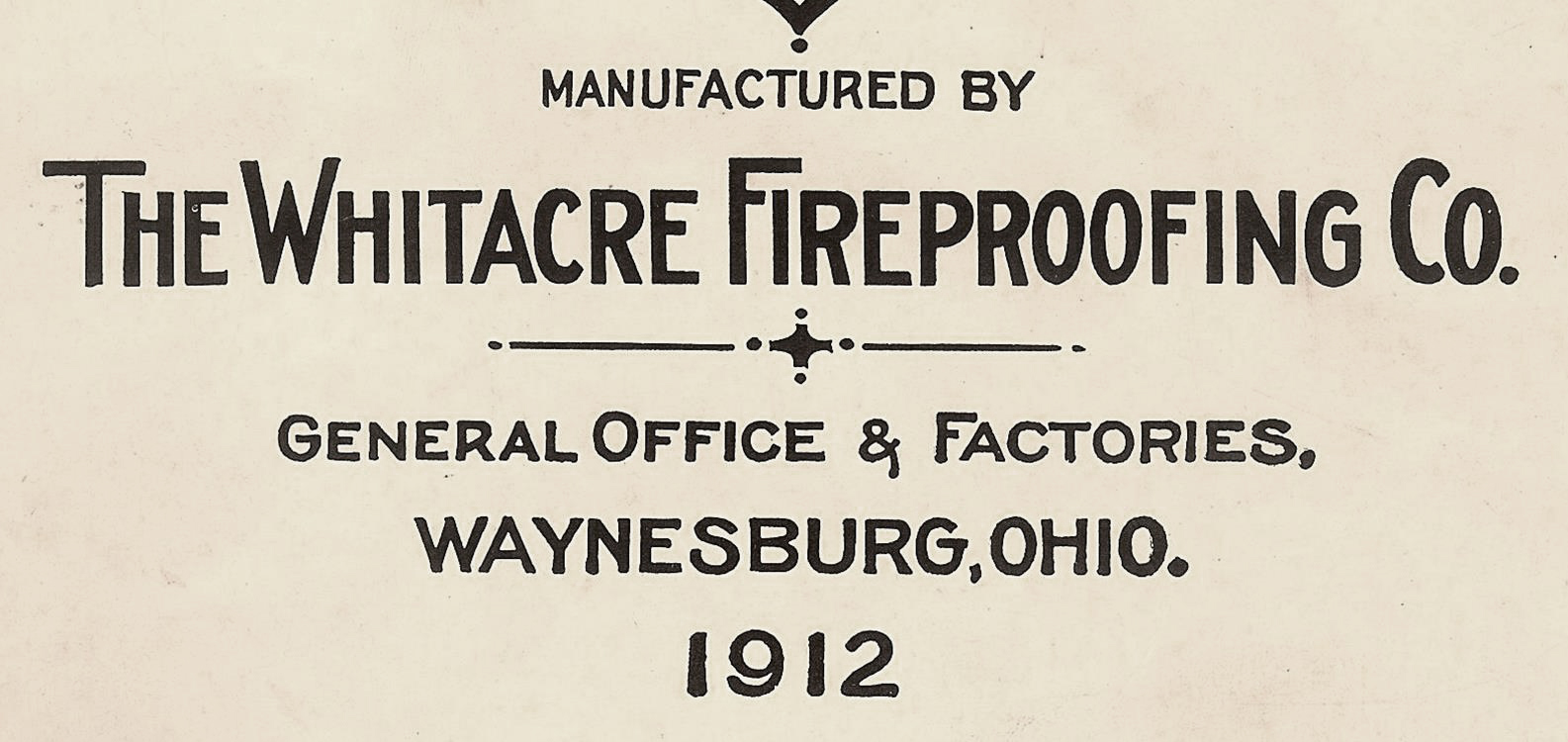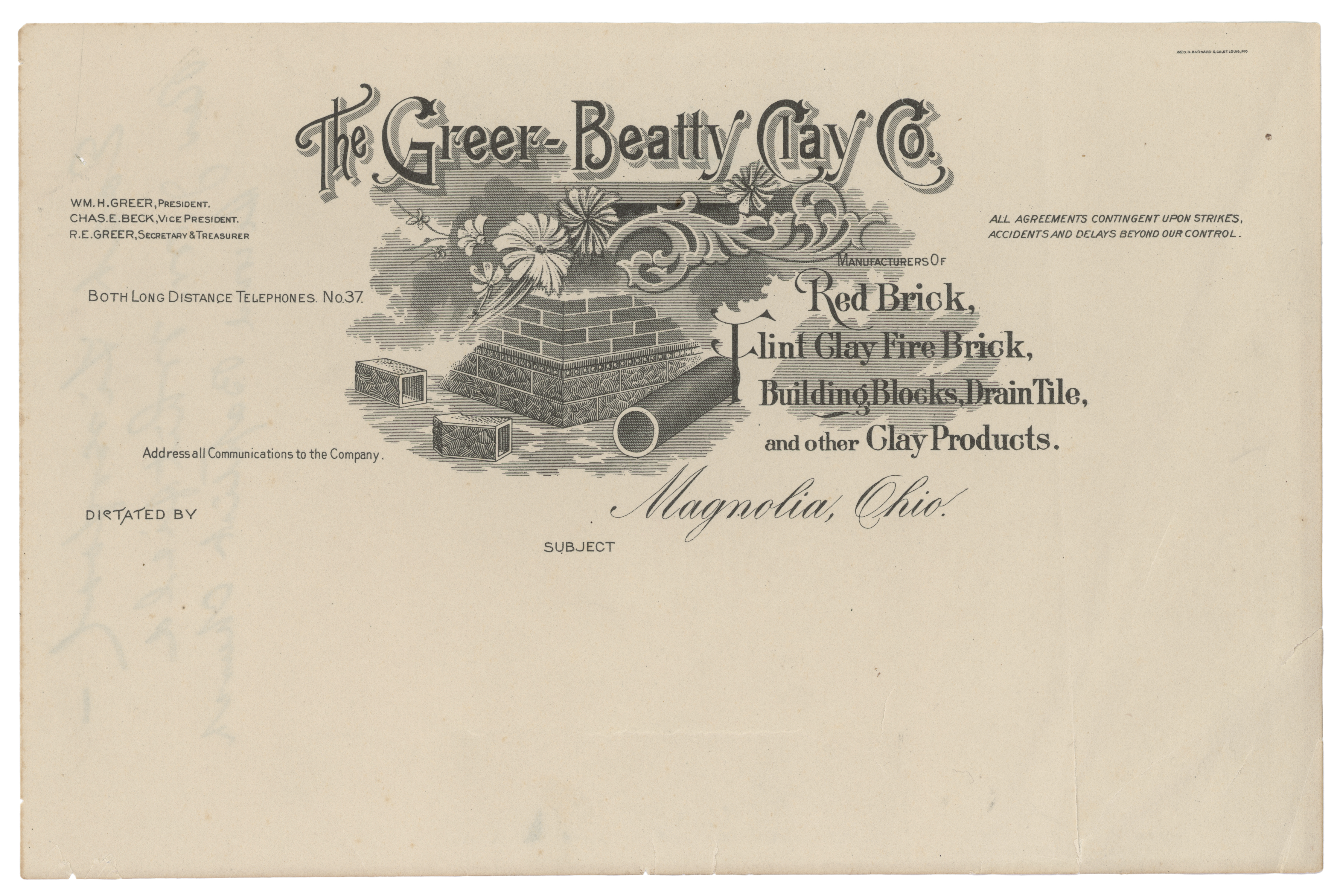Folklore has it that some Whitacre genes contributed to arguments and being stubborn. Old-timers told me that when JJ and his brothers held discussions at either end of the factory property, they could be heard at the office in the center of the plant.
After incorporating, the company build a factory in Waynesburg to produce fireproofing tile. The local clay was mined, mixed with water, extruded into hollow tile shapes such as 4 x 12 inches and the extruded column was cut by wire to 12-inch lengths, producing a 4 x 12 x 12 tile unit. The tiles were placed by hand on small rail cars and transported through a dryer. After drying, the tiles were placed by hand in 30-foot diameter round down draft kilns, which were fired by cool.
Waynesburg was primarily a village of retired farmers, certainly unable to supply the labor needed for a factory. JJ build about 100 houses (called Newtown) in the area, each on an acre of ground. He then recruited extensively among the Italian immigrants in Pennsylvania and African-Americans from the south. Jobs and a house with land and a reasonable purchase price were the incentive and the manpower required was soon in Waynesburg. The fireproofing business was under way. Many Italians coming to this country did not speak English. interesting, most joined the Mafia, whose main function was to look after the immigrants. For a modest $1-per-month fee, the Mafia found Italians jobs in the factories and served as an agent to help them receive fair treatment from their employers in the days before trade unions performed that function.
During the second half of the century, we will see that second- and third-generation descendants from these roots provided a wealth of talent for hourly and managerial work, which was invaluable to the company.




